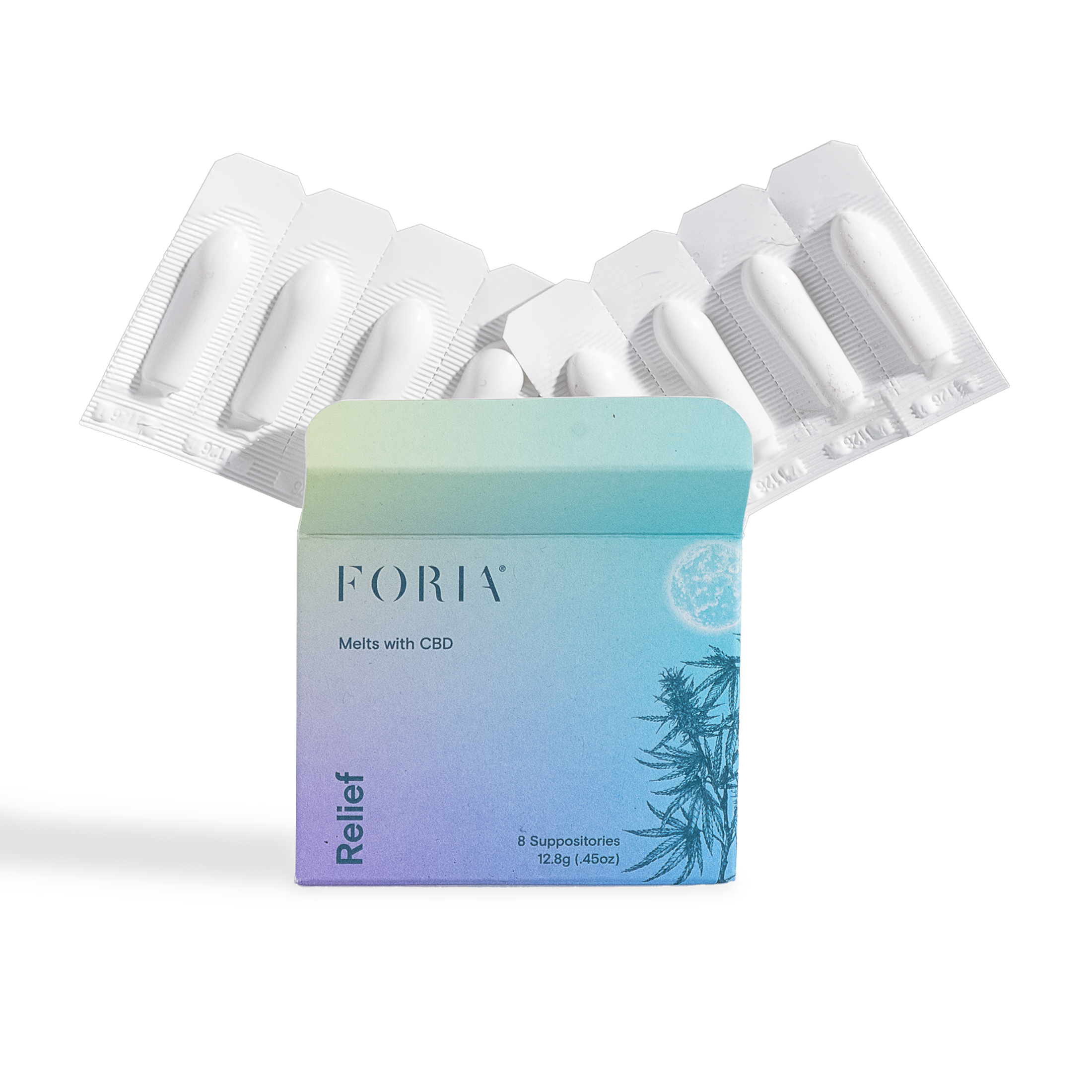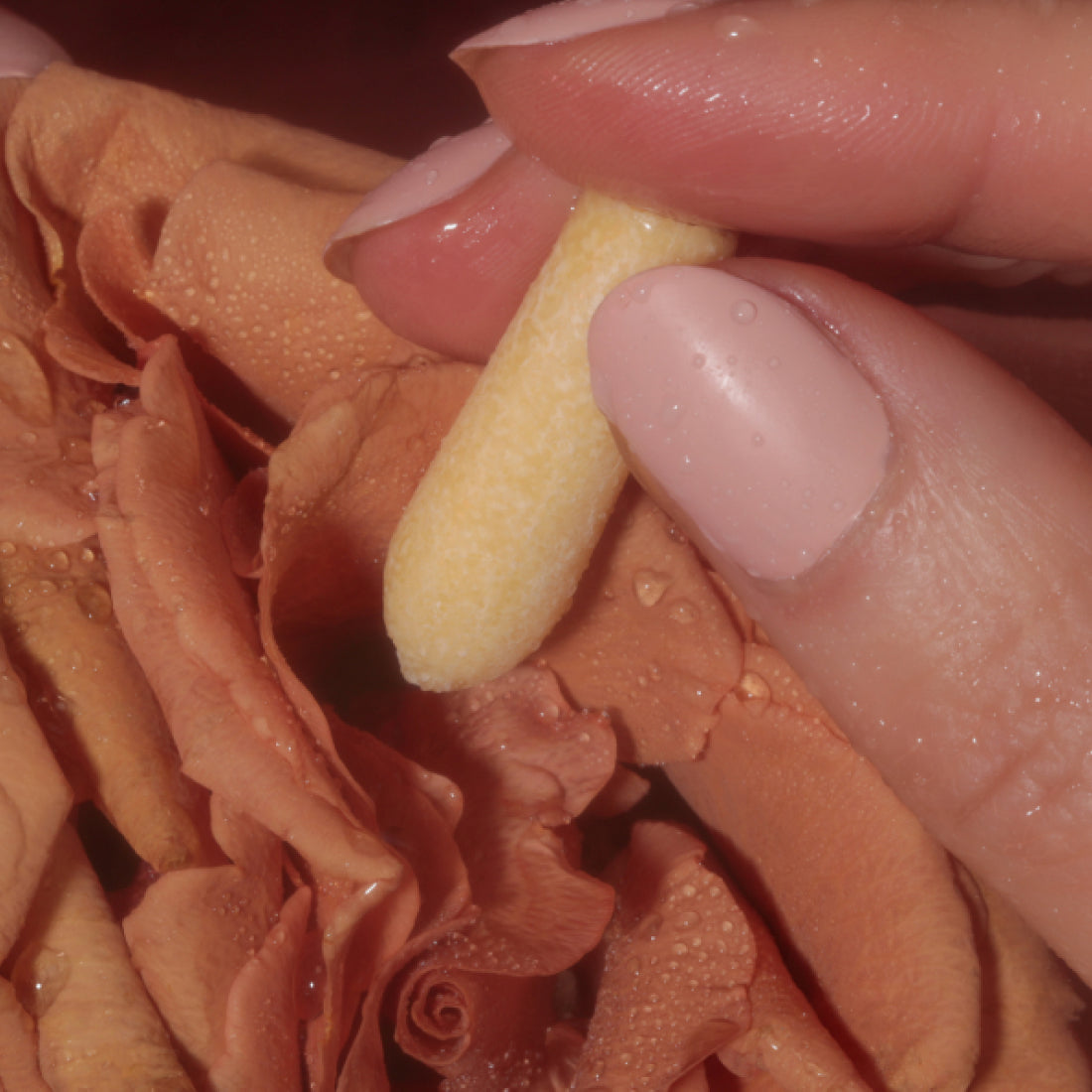As well as being one of the many parts of the body that can experience intense sexual pleasure, the vagina also serves as the pathway between the vulva and the cervix. And, unfortunately — like anywhere else in the body — it is capable of experiencing pain, too.
Let’s look at some common causes of vaginal pain and ways to soothe it when it pops up.
What Is Vaginal Pain?
Vaginal pain refers to any type of discomfort you experience in the vagina. This can include soreness, tension, burning, throbbing, or sharp pain. Paying attention to when the pain occurs can help guide you toward potential causes and solutions.
What Can Cause Vaginal Pain?
There are several common causes of vaginal pain ranging from psychological and physical. Understanding what is causing your vaginal pain can help you get the support you need.
Rough Sex
Rough sex can be exciting, sexy, and fun in the moment. But without proper lubrication, rough sex can also lead to painful sex and vaginal pain after the fact. Especially during penetration that, let’s just say, involves a larger-than-you’re-used-to element, the friction caused by fast and repetitive motions can lead to soreness, a feeling of rawness, irritation, or small tears along the vaginal wall (no, thank you!).
It’s best to work your way up to rougher sex or more intense penetration. Like any exercise, it can help to train your muscles before diving straight off the deep end.
If you're experiencing pain during or after your partner penetrates you, try easing in with fingering and moving to two or three fingers at a time to help you get aroused before penetration with anything larger. And, of course: lube, lube, and more lube.
Lubing up can help you avoid any uncomfortable friction capable of causing irritation or tears. For an all-out sex marathon, long-lasting oil-based lube can keep you covered for as long as you like, ensuring that the only pain you experience is the kind you’re actively after.
It’s also worth noting that dyspareunia — or pain during or after sexual intercourse — may occur even when taking it slow and steady. Sometimes, even fingering yourself or masturbating with an internal vibrator can cause discomfort.
Common causes for dyspareunia include stress or mental roadblocks, the side effects of certain medication, infections, or hormonal changes. Discomfort may range from moderate to severe, including throbbing, burning, or ripping sensations.
It’s easy to understand why sex might not be high up on your list of favorite activities if these sensations occur, but you deserve to experience pleasurable sex — no matter what type of sex you crave. If pain is getting in the way of a good time, we encourage you to be gentle with yourself and take steps to find what works for you.
This may look like speaking with a healthcare provider about treatment options, seeing a sex therapist, taking steps to manage stress, or inserting vaginal suppositories before sex that can help promote relaxation right at the source.
Period Cramps
When we talk about period cramps, the most common association and seemingly near-universal experience is the abdominal discomfort many uterus havers endure during the first few days of their period, or in the days leading up to it.
But if you experience vaginal pain during your period, you aren’t alone. While discussed less often, it is normal to feel pelvic pain, soreness, or cramping in the vagina, thighs, and back during menstruation.
When the uterus sheds its endometrial lining, prostaglandins trigger muscle spasms in the uterus to help encourage the discharge of unneeded uterine tissue. And with the vagina connecting to the uterus at the cervix and carrying the blood from the cervix and out of the body, these muscle contractions can also cause cramps or spasms in the vagina.
While uncomfortable, these types of muscle pains are not typically signs of an underlying issue. Of course, if the pain is severe or occurring throughout the month, it’s always a good idea to let your doctor know to help determine and address any potential causes beyond regular menstrual cramps.
Finding a functional and integrative healthcare provider is a good first step in finding treatment options. They can recommend diet changes, supplements, and lifestyle shifts to support a more comfortable period.
Vaginal Dryness
If you experience painful intercourse at the vaginal opening, it may be due to vaginal dryness. When we are aroused, the glands found at the entrance of the vagina secrete fluids responsible for the lubrication we often feel when turned on.
This natural moisture can help reduce friction and protect the vaginal walls from related discomfort. But, even when we are aroused, our vaginas don't always produce enough lubrication to ensure sex is fully free of discomfort.
This doesn’t mean we aren’t attracted to our partner or interested in sex (although, of course, if you aren’t interested at the moment, don’t pressure yourself or try to force it for anyone else’s benefit).
Hormonal changes following menopause can increase the odds of vaginal dryness, as the reduction in estrogen can cause the body to produce less vaginal fluids, even when we are in the mood. Certain medications can also play a role in causing vaginal dryness.
The good news is that lube serves as a completely safe and functional alternative to vaginal secretions and can aid in deepening pleasure and extending the fun regardless of how much moisture we naturally produce. Check out our Intimacy Sex Oil for some slippery fun the next time discomfort gets in the way.
Infections
Infections may be one of the most common causes of vaginal discomfort. In fact, 75% of vulva owners develop a yeast infection at least once. It’s nothing to be ashamed of — just something to treat!
Certain infections, such as yeast infections or bacterial vaginosis, can cause genital pain, including sharp pain, swelling, itching, and burning. STIs (sexually transmitted infections) like chlamydia, herpes, and gonorrhea can also cause pelvic pain.
Even certain scented soaps can irritate the vagina, especially for those with sensitive skin or who are prone to UTIs (urinary tract infections) or yeast infections. Vaginal infections may also lead to unusual discharge, so if your pain is accompanied by vaginal discharge that looks or smells different than your usual discharge, you may want to check in with your doctor or gynecologist, as many of these types of infections can be cleared or treated with medication.
Antibiotics or antifungal creams are potential treatments that can bring relief when facing infection-related vaginal pain. And remember, say no to the douche. Douching can alter the pH of the vagina and lead to infection and discomfort.
Some Medical Conditions
Depending on the cause or condition at the source of your vaginal pain, the type of discomfort you experience can vary. For instance, a medical condition known as vulvar vestibulitis typically only causes discomfort when pressure is placed on the vagina, while endometriosis can lead to worse pain during your period or ovulation, and vulvodynia can cause chronic pain.
Cysts and pelvic floor dysfunction are other potential causes of pelvic pain. Seeking out medical advice can help you figure out what is causing your pain and what options are available.
For instance, pelvic floor physical therapists can provide support if you are experiencing pain related to the pelvic floor muscles (such as vaginismus), while balancing hormones can help reduce period-related pain and cysts may be removed.
Certain lifestyle changes, over-the-counter medications, and home remedies can still offer relief for medical conditions that don’t have a specific treatment available.
How Can You Relieve Vaginal Pain?
If you’ve sought out medical advice from a healthcare provider and determined that an infection or treatable medical condition is not the cause of your discomfort, there are wellness tips and potential home remedies that can help soothe and ease vaginal discomfort.
Cooling Ice Pack
Ice cubes aren’t just a way to add a little erotic temperature play into your bedroom repertoire (although we recommend giving this a try, too!), but they can also provide cooling relief when you’re experiencing vaginal pain.
When used in short bursts, ice therapy can help numb the surface and the tissues around the vagina to help alleviate swelling, itching, burning, or irritation. We recommend placing an ice pack on your vulva (externally) or using an ice pack specifically designed for the vagina from a trusted manufacturer.
Remove the ice pack after no more than 30 minutes — you want the labia and vaginal opening to be pleasantly cooled but not red or completely numb.
Soothing Suppository
Suppositories are easily inserted into the vagina and can be absorbed to provide calming relief. Our Relief Melts contain CBD, the soothing plant cannabinoid that joins forces with our body’s internal endocannabinoid system as they bind with cannabinoid receptors found on the surface of cells throughout the body.
And, fun fact, the vagina contains quite a concentration of cannabinoid receptors. By supporting and prolonging the soothing effects of our endocannabinoids, applying CBD at the site of discomfort can play a role in easing muscle tension known to cause discomfort.
Another plus? The mucous membranes in the vagina are super absorbent, meaning that the soothing benefits of CBD melts can kick in within minutes. In comparison, consumable CBD — while still hugely beneficial in boosting the mood and promoting full-body relaxation — can take upwards of 40 minutes to take effect as it passes through the digestive tract before it is absorbed into the bloodstream.
So if vaginal discomfort is cramping your style and requires immediate attention, a CBD suppository can provide the quick and easy relief you crave.
Plenty of Rest
We love you enjoying some hot-n-heavy nights of love, but make sure you set plenty of time for sleeping, too!
Rest is vital not just for our overall health but for reducing stress levels, supporting muscle recovery, and boosting the immune system — all of which can be key in limiting vaginal pain or helping heal any specific injuries such as tears from rough sex. So get that shut-eye; your body will thank you for it!
What Are Some Natural Ways To Prevent Vaginal Pain?
Use lube to prevent vaginal pain that stems from sex — especially lube that contains naturally-soothing CBD!
CBD can help soothe discomfort by working with our own endocannabinoids to support relaxation and feelings of calm. Since stress can play a role in heightening pain perception and can have a physiological effect on the body by increasing swelling, muscle spasms, and tension, studies have found that stress can worsen chronic pain.
So, any action you can take to reduce your stress levels can also have the added benefit of reducing vaginal discomfort and promoting good vibes all around. CBD is also non-intoxicating and can’t get you high, no matter your intake method.
When inserted vaginally, CBD melts work with cannabinoid receptors close to the application site (in this case: the vagina and the cervix) rather than being absorbed into the bloodstream to provide localized and fast alleviation.
And even more, CBD may also partner with blissful endocannabinoids like anandamide and pleasure-boosting neurotransmitters such as serotonin to actively deepen feelings of sexual pleasure while also reducing discomfort. How’s that for a win-win?
The Bottom Line
Vaginal pain can occur due to a wide range of potential causes. By taking note of the specific type and location of the discomfort and when it occurs and making changes to your routine that center care — from incorporating lube into your sex life to prioritizing rest and relaxation — you can better understand your body and seek out solutions to keep comfort and pleasure at the forefront.
Sources:
Yeast infection (vaginal) - Symptoms and causes | Mayo Clinic
Featured in this article
Want more? Sign up for our newsletter
By entering your email, you are agreeing to our terms and conditions and understand our privacy policy.













